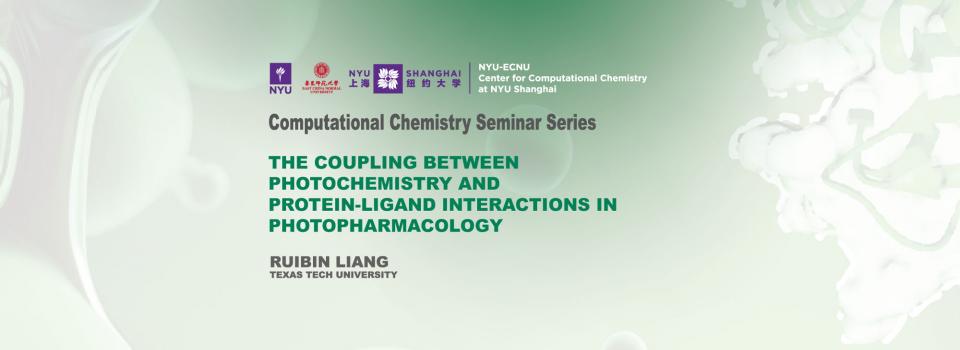
Abstract
Molecular photoswitches undergo reversible photoisomerization induced by different wavelengths of light. Their interactions with biomolecules allow photo-control of biological systems with high spatiotemporal resolution. Following this strategy, various photoswitchable molecules were recently designed as light-regulated drugs. Their activity can be switched on and off reversibly in specific regions of the body through light, which reduces the severe side effects of traditional chemotherapy. However, it remains elusive how their photochemical reactions are coupled to the interactions with their target biomolecules. In this talk, I will discuss our recent work to fill this gap. We employed multiscale simulations to comprehensively characterize how photoswitchable analogs of clinically approved therapeutics reversibly inhibit essential protein targets for cancer treatment. Our simulation integrates docking simulations, first principles non-adiabatic dynamics simulation coupled with correlated electronic structure method, and free energy simulations. The simulations elucidate how the ligand binding/unbinding events are coupled with the bi-directional photoisomerization reactions and provide new insights into the balance of ligand binding affinity, quantum yield, and thermal backflow, which is critical for improving the design of light-regulated drugs in photopharmacology.
Biography
In 2011, Dr. Ruibin Liang received his Bachelor of Science degree in Chemical Biology from Tsinghua University. In 2016, he obtained his Ph.D. degree in Chemistry from the University of Chicago under his advisor Professor Gregory A. Voth. His Ph.D. study focused on the development and application of multiscale reactive molecular dynamics simulation to characterize the proton transport mechanism in proteins. From 2016 to 2017, Dr. Ruibin Liang was a postdoctoral researcher under Professor William H. Miller at the University of California, Berkeley, where he developed and applied semiclassical dynamics methods to understand ultrafast exciton transport in semiconducting polymers. From 2017 to 2020, Dr. Ruibin Liang worked as a postdoctoral researcher under Prof. Todd J. Martínez at Stanford University, where he applied multiscale simulations to the light activation mechanisms of photoactive proteins, including channelrhodopsin and bacteriorhodopsin. Since September 2020, Dr. Ruibin Liang has been a tenure-track Assistant Professor in the Department of Chemistry and Biochemistry at Texas Tech University, where he focused on the multiscale simulation of light-regulated protein activity via molecular photoswitches, aggregation-induced emission in biological systems, enzyme catalysis for sustainable chemical transformation of hydrocarbons, and functional mechanisms of cation-coupled carbohydrate transporters. Overall, his research contributed to the development of new multiscale simulation tools for studying biochemical reactions and guided the design of influenza therapeutics, proton pumps, optogenetic proteins, high-resolution fluorescent probes and light-regulated drugs.
Dr. Ruibin Liang has multiple publications in high-impact journals in his field (e.g., PNAS, JACS, JCTC, JPC, JCP, and PCCP). As an independent researcher, Dr. Liang has published five papers in high-impact journals in theoretical and computational chemistry. His group has received funding from the Welch Foundation, a prestigious award for chemists in Texas. Dr. Ruibin Liang is currently recruiting motivated students to join his research group.
Seminar Series by the NYU-ECNU Center for Computational Chemistry at NYU Shanghai


